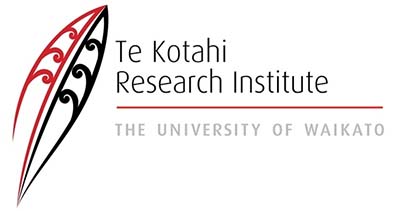He Tohu Ārahi - Guidelines for Protecting Cultural Intellectual Property in Research and Innovation (2024)
K Riddle, M Hudson, N Kusabs, R Sterling
He Tohu Ārahi serves as a starting point for in-depth discussions for Indigenous people involved in research and innovation projects. It provides guidance around the conversations to have, provisions required, and protection mechanisms for mātauranga Māori within research and their various associated agreements.
On behalf of Te Kotahi Research Institute, the following video is an introduction to the new guidelines for protecting IP in research and innovation in Aotearoa that have emerged from the Science for Technological Innovation funded National Science Challenge research project.
Approaches to Benefit Sharing Summit video launching He Tohu Ārahi Guidelines
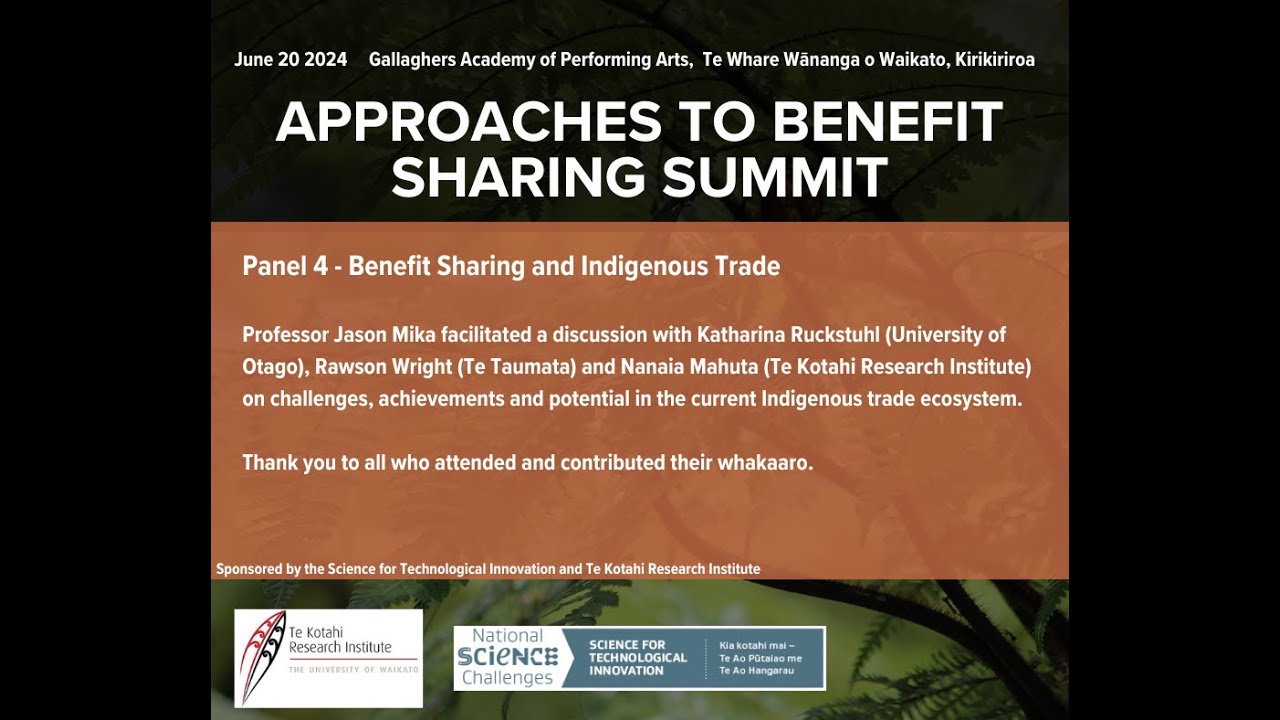
You can also watch and share the Approaches to Benefit Sharing Summit video launching He Tohu Ārahi Guidelines from YouTube.
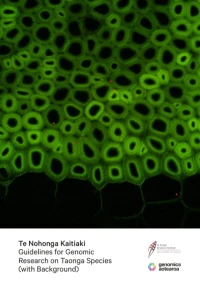 Te Nohonga Kaitiaki - Guidelines for Genetic Research on Taonga Species (with background)
Te Nohonga Kaitiaki - Guidelines for Genetic Research on Taonga Species (with background)
M Hudson, A Thompson, P Wilcox, J Mika, C Battershill, M Stott, R Brooks, L Warbrick. (2023)
Te Nohonga Kaitiaki refers to the role of kaitiaki and mana whenua in managing Māori interests in biological samples or genetic resources, and data relating to taonga species across the full spectrum of activities from sample collection to sample storage, from data curation to data sharing. On behalf of Te Nohonga Kaitiaki team, the following video is an outline of new guidelines for genomic research on taonga species that have emerged from a Genomics Aotearoa funded research project (presented by Maui).
Download Te Nohonga Kaitiaki
Watch the Kingitanga day video addressing Te Nohonga Kaitiaki Guidelines.
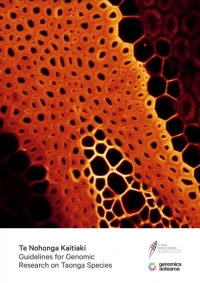
Te Nohonga Kaitiaki - Guidelines for Genomic Research on Taonga Species. M Hudson, A Thompson, P Wilcox, J Mika, C Battershill, M Stott, R Brooks, L Warbrick
Te Nohonga Kaitiaki refers to the role of kaitiaki and mana whenua in managing Māori interests in biological samples or genetic resources, and data relating to taonga species across the full spectrum of activities from sample collection to sample storage, from data curation to data sharing.
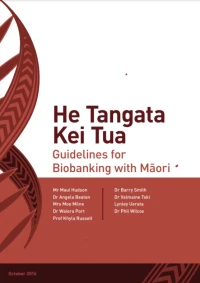 He Tangata Kei Tua: Guidelines for biobanking with Māori. M Hudson, A Beaton, M Milne, W Port, K Russell, B Smith, V Toki, L Uerata, P Wilcox. (2016)
He Tangata Kei Tua: Guidelines for biobanking with Māori. M Hudson, A Beaton, M Milne, W Port, K Russell, B Smith, V Toki, L Uerata, P Wilcox. (2016)
This document outlines a framework for addressing Māori ethical issues within the context of biobanking. It draws on a foundation of mātauranga (Indigenous knowledge) and tikanga Māori (Māori protocols and practices) and will be useful for researchers, ethics committee members and those who engage in consultation or advice about biobanking with Māori in local, regional, national or international settings.
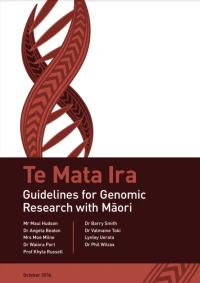 Te Mata IraTe Mata Ira: Guidelines for genomic research with Māori. M Hudson, A Beaton, M Milne, W Port, K Russell, B Smith, V Toki, L Uerata, P Wilcox. (October 2016)
Te Mata IraTe Mata Ira: Guidelines for genomic research with Māori. M Hudson, A Beaton, M Milne, W Port, K Russell, B Smith, V Toki, L Uerata, P Wilcox. (October 2016)
This document outlines a framework for addressing Māori ethical issues within the context of genetic or genomic research. It draws on a foundation of mātauranga (Māori knowledge) and tikanga Māori (Māori protocols and practices) and will be useful for researchers, ethics committee members and those who engage in consultation or advice about genomic research with Māori in local, regional, national or international settings.
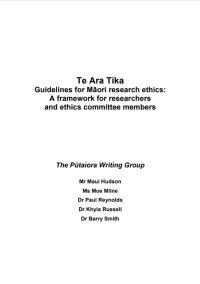 Te Ara TikaTe Ara Tika: Guidelines for Māori Research Ethics. A framework for researchers and ethics committee members. M Hudson, M Milne, P Reynolds, K Russell, B Smith. (2010)
Te Ara TikaTe Ara Tika: Guidelines for Māori Research Ethics. A framework for researchers and ethics committee members. M Hudson, M Milne, P Reynolds, K Russell, B Smith. (2010)
Research contributes to the broader development objectives of society. Ethics has a specific role in guiding key behaviours, processes and methodologies used in research. International codes of ethics such as the Nuremburg Code (1947)2, the Helsinki Declaration (1964)3, the Belmont Report (1979)4 and, more recently, the UNESCO Universal Declaration on Bioethics and Human Rights (2005)5 shape the changing ethical standards and professional expectations for researchers.
